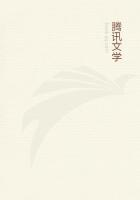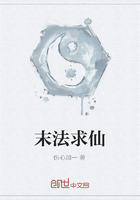b. In the theoretic consciousness the ego, although the assertive generally, finds itself limited by the non-ego. But it is identical with itself; hence its infinite activity ever sets itself to abrogate the non-ego and to bring forth itself. Now the different methods whereby the ego sets forth itself are the different methods of its activity; these we have to understand in their necessity. But since philosophic knowledge is the consideration of consciousness itself (supra, p. 483), I can only know knowledge, the act of the ego. Fichte thus appeals to consciousness, postulates ego and non-ego in their abstraction, and since philosophic knowledge is the consciousness of consciousness, it is not sufficient that I should find its determinations in consciousness, for Iproduce them with consciousness. Common consciousness, indeed, likewise brings forth all the determinations of the ordinary conception and of thought, but without - on the theoretic side at least - having any knowledge of it; for it is the fact of being limited alone that is present to it. Thus, when I see a large square object, such as a wall, my ordinary consciousness accepts these determinations as they are given to it; the object is. In so doing I do not think of seeing, but of the object; seeing, however, is my activity, the determinations of my faculty of sensation are thus posited through me.(16) The ego as theoretic is, indeed, aware in philosophic consciousness that it is the ego which posits; but here it posits that the non-ego posits somewhat in me. The ego thus posits itself as that which is limited by the non-ego. I make this limitation mine; thus is it for me in me, this passivity of the ego is itself the activity of the ego. As a matter of fact, all reality which appears in the object for the ego is a determination of the ego,(17) just as the categories and other determinations were in Kant's case. Thus it is here more especially that we should expect Fichte to demonstrate the return of other-Being into absolute consciousness. However, because after all the other-Being was regarded as unconditioned, as implicit, this return does not come to pass. The ego determines the 'other,' indeed, but this unity is an altogether finite unity; non-ego has thus immediately escaped from determination once more and gone forth from this unity. What we find is merely an alternation between self-consciousness and the consciousness of another, and the constant progression of this alternation, which never reaches any end.(18)The development of theoretic reason is the following-out of the manifold relationships between the ego and non-ego; the forms of this limitation which Fichte now goes through are the determinations of the object. These particular thought-determinations he calls categories, and he seeks to demonstrate them in their necessity; from the time of Aristotle onwards no one had thought of so doing. The first of these forms is the determination of reciprocity, which we already met with in the third proposition: “By the determination of the reality or negation of the ego, the negation or reality of the non-ego is equally determined;” the two in one is reciprocal action. In the second place, “Causality is the same degree of activity in the one as of passivity in the other.” In so far as something is considered as the reality of the non-ego, the ego is considered as passive, and, on the other hand, in so far as 'I' am real, the object is passive; this relation, that the passivity of the object is my activity or reality, and the opposite, is the conception of Causality. “As many parts of negation as the ego posits in itself, so many parts of reality it posits in the non-ego; it therefore posits itself as self-determining in so far as it is determined, and as suffering determination in so far as it determines itself. In so far,” in the third place, “as the ego is regarded as embracing the whole absolutely determined realm of all reality, it is substance; on the other hand when it is posited in a not absolutely determined sphere of this realm, in so far there is an accidence in the ego.” (19) That is the first rational attempt that has ever been made to deduce the categories; this progress from one determination to another is, however, only an analysis from the standpoint of consciousness, and is not in and for itself.
The ego is so far the ideal ground of all conceptions of the object; all determination of this object is a determination of the ego. But in order that it may be object, it must be placed in opposition to the ego, i.e. the determinations set forth through the ego are another, the non-ego; this placing of the object in opposition is the real ground of conceptions. The ego is, however, likewise the real ground of the object; for it is likewise a determination of the ego that the non-ego as object is set in opposition to the ego. Both, the real ground and the ideal ground of the conception, are thus one and the same.(20) Regarding the ego as ideal principle and the non-ego as real principle, Krug has likewise talked a great deal of nonsense. Regarded from the one point of view, the ego is active and the non-ego purely passive; while from the other side the ego is passive and the object active and operative. But since the ego in the non-philosophic consciousness does not have the consciousness of its activity in the conception of the object, it represents to itself its own activity as foreign, i.e. as belonging to the non-ego.
We here see the opposition adopting various forms: ego, non-ego; positing, setting in opposition;two sorts of activity of the ego, &c. The fact that I represent is undoubtedly my activity, but the matter of main importance is the content of the positing and its necessary connection through itself.















